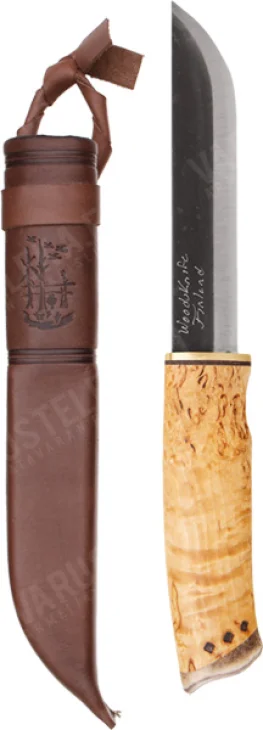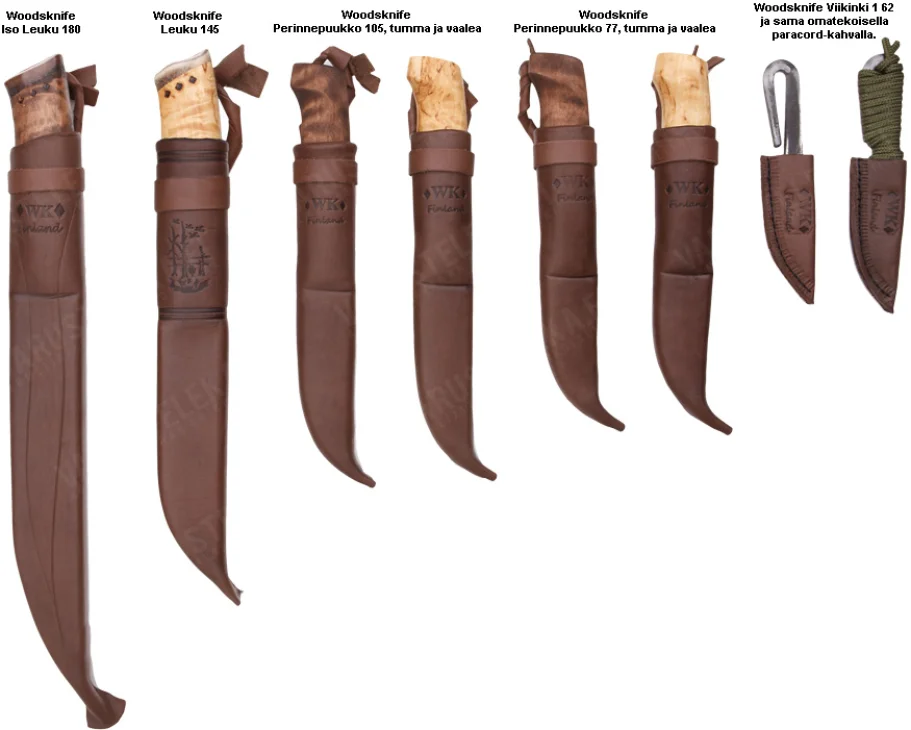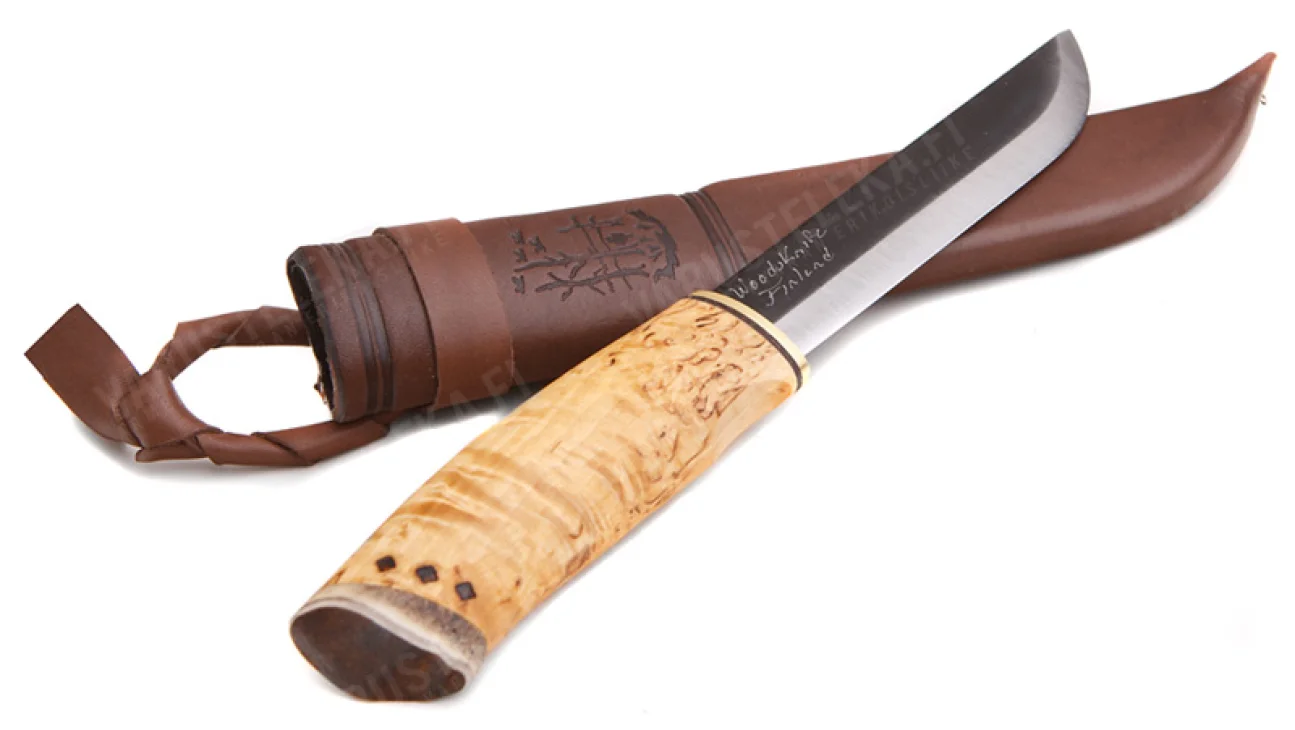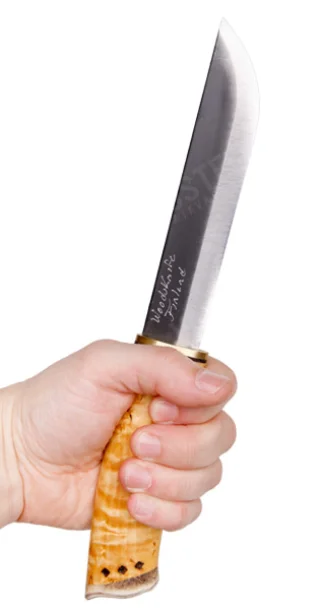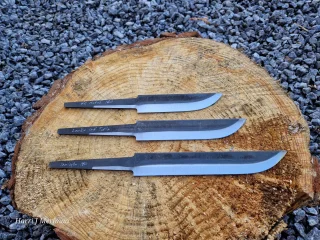A leuku is a traditional larger outdoors knife used in Finland for ages, it's used for those jobs that require less finesse, chopping stuff, and carving sticks into stakes, etc. This full-grown leuku with a 145 mm (5.7") long blade is a good utility knife for all-around work, it's long enough to effectively chop yet it can still be used for wood carving and other smaller tasks.
Features
C80CrV2 carbon steel blade (59 HRC), which is very good for puukko style knives because it is easy to sharpen and retains the sharpness quite well. The knife has a beautiful curly birch handle with a reindeer antler decorative element at the end. The sheath is of the traditional Finnish style, wet formed leather, fitting snugly over the handle. 4-6 cm (1.6" - 2.4") wide belt hanger.
Carbon steel is good stuff for knives, but without proper care, it can rust. Always clean and dry off the blade after use and remember to oil it now and then (any cooking oil will do just fine).
These types of traditional knives have been around for ages, and for a reason: they are rugged, simple and practical. They have been used as weapons almost as much as everyday tools, at least in the past. Still today they are an essential piece of kit for any outdoors enthusiast. What makes a traditional puukko and leuku special compared to modern blades is that they have no saw-edge bullshit or anything like that - you have a simple, strong, and sharp carbon steel blade with a wooden handle. This truly is all you need, if you know how to use it.
Woodsknife has very nice finishing touches and personalized handle designs that differ a bit from what you commonly see. Putting finishing touches aside both perform equally well as tools - think about your specific needs in finish and blade size and choose the model that suits you best!
Made by Harri Merimaa / Woodsknife Oy, made in Finland.
Warning! Before buying, please make sure that these are legal to import to your country! We take no responsibility if the customs officer confiscates your precious knife!
Guo T.
Tod W.
Weesel G.
Store
00390 Helsinki
Mon-Fri 10:00-20:00
Sat 10:00-19:00
Sun 12:00-17:00
Exceptions to opening hours on the Store page.
Propaganda
Contact us
[email protected]
Mon-Fri 08:00-20:00 EET
Sat 10:00-18:00 EET
Sun 10:00-18:00 EET
See all Contact Information.
